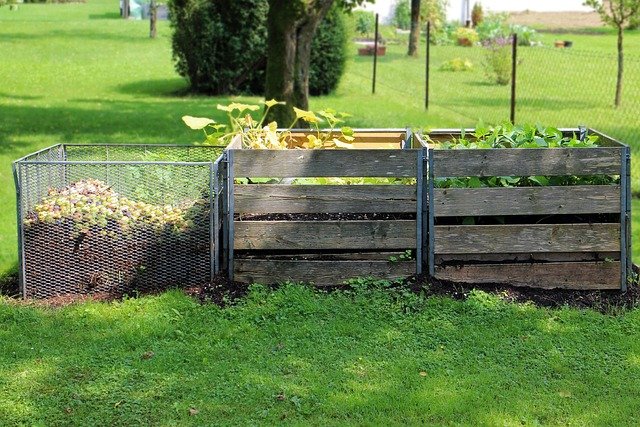Complete Guide to Weed Remover Solutions for Your Garden
Weeds can transform a pristine garden into an unsightly mess, competing with your plants for nutrients and water whilst spoiling your outdoor space's appearance. Whether you're dealing with stubborn dandelions in your lawn or persistent growth between paving stones, choosing the right weed remover approach can make all the difference. From traditional chemical solutions to eco-friendly alternatives like vinegar, understanding your options helps you maintain a beautiful, weed-free garden year-round.

How Do Different Weed Removers Work?
Weed removers function through various mechanisms depending on their composition. Systemic herbicides absorb through leaves and travel to the roots, effectively killing the entire plant including underground parts. Contact herbicides work by destroying plant tissue they touch directly, making them ideal for quick results on visible growth.
Pre-emergent weed removers prevent seeds from germinating, creating a protective barrier in soil that stops weeds before they start growing. These prove particularly effective for seasonal weed control when applied at the right time of year.
What’s the Best Method to Remove Weeds in the Lawn?
Removing weeds in the lawn requires careful consideration to avoid damaging grass. Selective herbicides target broadleaf weeds whilst leaving grass unharmed, making them perfect for lawn applications. Look for products containing 2,4-D, dicamba, or MCPP as active ingredients.
For organic approaches, corn gluten meal works as a natural pre-emergent, preventing weed seeds from establishing. Hand-pulling remains effective for isolated weeds, especially when soil is moist after rain. Maintaining thick, healthy grass through proper fertilisation and watering naturally crowds out potential weeds.
Can You Kill Weeds Without Harming Other Plants?
Selective weed control protects desirable plants whilst eliminating unwanted growth. Spot-treatment applications allow precise targeting of individual weeds using foam applicators or paint-on solutions. This method proves especially useful in flower beds or vegetable gardens.
Physical barriers like cardboard or landscape fabric suppress weeds around established plants. Mulching with organic materials creates natural weed suppression whilst enriching soil as it decomposes. Boiling water provides another targeted approach, instantly killing weeds without chemical residues.
How Effective Is Vinegar Against Weeds?
Using vinegar against weeds offers an eco-friendly alternative to chemical herbicides. White vinegar with 5% acetic acid effectively burns weed foliage, causing rapid wilting and browning. Higher concentration vinegars (10-20% acetic acid) provide stronger results but require careful handling.
Vinegar works best on young, tender weeds and may require multiple applications for established plants. Adding dish soap improves adherence to waxy leaf surfaces, whilst salt increases effectiveness but can harm soil health. Apply vinegar solutions on sunny days for maximum impact, as sunlight enhances the burning effect.
Which Weed Removers Work Best in British Gardens?
British gardeners face unique challenges with persistent weeds like plantain, clover, and moss thriving in the UK’s mild, damp climate. Glyphosate-based products remain highly effective for total vegetation control, though recent regulations have restricted availability for non-professional use.
Iron sulphate proves particularly useful for controlling moss and feeding lawns simultaneously. For organic gardening, pelleted chicken manure helps strengthen grass whilst creating conditions less favourable for weeds. Timing applications with British weather patterns maximises effectiveness - apply liquid treatments during dry spells and granular products before expected rainfall.
How Can You Permanently Remove Weeds Between Paving Stones?
Permanently removing weeds between paving stones requires addressing both existing growth and prevention of future problems. Start by removing visible weeds manually or with specialised weeding tools designed for narrow spaces. Power washing clears debris and loose material from joints.
Applying polymeric sand or resin-based jointing compounds creates a solid barrier preventing future weed establishment. For immediate results, sodium chlorate effectively eliminates existing vegetation, though it’s banned for amateur use in many areas. Boiling water provides a safer alternative, requiring regular reapplication but avoiding chemical concerns.
| Method | Type | Estimated Cost | Effectiveness |
|---|---|---|---|
| Glyphosate concentrate | Chemical | £8-15 per litre | Very High |
| Selective lawn herbicide | Chemical | £12-25 per litre | High |
| White vinegar solution | Natural | £2-5 per application | Moderate |
| Professional treatment | Service | £50-150 per visit | Very High |
| Manual removal tools | Physical | £10-30 one-time | Moderate |
Prices, rates, or cost estimates mentioned in this article are based on the latest available information but may change over time. Independent research is advised before making financial decisions.
Successful weed control requires understanding your specific situation and choosing appropriate methods accordingly. Whether you opt for chemical solutions, natural alternatives, or professional services, consistency and proper timing prove crucial for long-term success. Remember that healthy soil and proper plant care create the best foundation for natural weed prevention, reducing your reliance on active removal methods over time.




